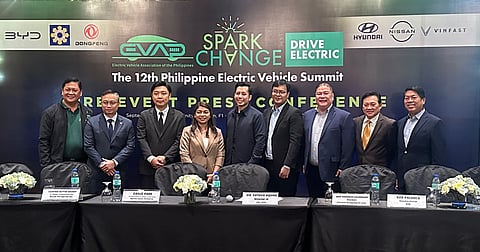
- NEWS
- the EDIT
- COMMENTARY
- BUSINESS
- LIFE
- SHOW
- ACTION
- GLOBAL GOALS
- SNAPS
- DYARYO TIRADA
- MORE

The Philippines might be saying goodbye to noisy engines and smoky streets in the near future, thanks to the efforts of the Electric Vehicle Association of the Philippines (EVAP). This group has been quietly pushing the country towards electric vehicles, working closely with policymakers, industry leaders and communities to make electric cars and jeepneys a normal sight.
EVAP has teamed up with government offices like the Department of Energy, the Department of Trade and Industry and the Land Transportation Office. Their goal? To craft policies that encourage people to switch to electric vehicles. A big win came in 2022 with the Electric Vehicle Industry Development Act (EVIDA). This law gives tax breaks for EV buyers, requires businesses to set up charging stations, and pushes fleets — both public and private — to make the shift.
EVAP president Edmund Araga stressed just how vital these policy wins are. “Our advocacy has always been clear. We need a strong policy framework that incentivizes EV adoption and supports the local EV industry. With EVIDA in place, we are now seeing the government, private sector, and consumers working together to make EVs the new normal in Philippine transportation.”
But getting people to trust electric cars takes more than laws. EVAP is also working closely with the Bureau of Philippine Standards to set guidelines for battery tech, charging plugs, and safety. It’s a practical step to make sure moving to electric vehicles is easy, safe and hassle-free for everyone.
Still, one big hurdle remains: charging stations. EVAP knows that for EVs to truly catch on, charging stations need to be as common as gas stations. They’re actively partnering with energy companies, shopping malls, property developers, and local governments to expand charging infrastructure. Today, Metro Manila alone already has over 100 charging spots, and Cebu and Davao are catching up quickly.
Araga highlights why this matters. “A robust charging infrastructure is crucial to build consumer confidence in EVs. That is why we are continuously engaging with both the private sector and the government to accelerate the rollout of charging stations.”
All these efforts are starting to pay off. More Filipinos are interested in EVs, and sales have jumped significantly. According to the Department of Trade and Industry, the number of registered EVs shot up by 45 percent in 2024. Major car brands like Nissan, BYD and Hyundai are now offering electric cars in the local market, and public transportation is slowly switching to electric jeepneys, thanks to the government’s modernization program.
Araga has noticed the positive shifts firsthand. “We are seeing more transport groups embrace electric jeepneys, thanks to government support and the growing awareness of the cost savings and environmental benefits of going electric.”
Yet, EVAP knows there’s still work ahead. They’re pushing for local production of EV components, training workers through TESDA’s EV programs, and encouraging local governments to adopt EV-friendly policies.
Despite these challenges, Araga remains hopeful. “The future of Philippine mobility is electric. With sustained government support, industry cooperation and consumer awareness, we can make EV adoption a reality for all Filipinos.”
